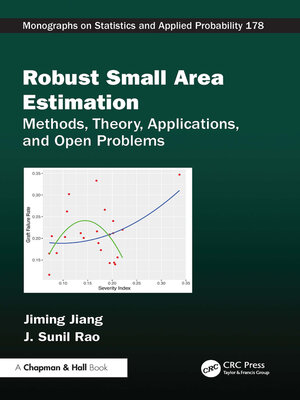Robust Small Area Estimation
ebook ∣ Methods, Theory, Applications, and Open Problems · Chapman & Hall/CRC Monographs on Statistics and Applied Probability
By Jiming Jiang

Sign up to save your library
With an OverDrive account, you can save your favorite libraries for at-a-glance information about availability. Find out more about OverDrive accounts.
Find this title in Libby, the library reading app by OverDrive.



Search for a digital library with this title
Title found at these libraries:
| Library Name | Distance |
|---|---|
| Loading... |
In recent years there has been substantial and growing interest in small area estimation (SAE) that is largely driven by practical demands. Here, the term "small area" typically refers to a subpopulation or domain of interest for which a reliable direct estimate, based only on the domain-specific sample, cannot be produced due to small sample size in the domain.
Keywords in SAE are "borrowing strength". Because there are insufficient samples from the small areas to produce reliable direct estimates, statistical methods are sought to utilize other sources of information to do better than the direct estimates. A typical way of borrowing strength is via statistical modelling. On the other hand, there is no "free lunch". Yes, one can do better by borrowing strength, but there is a cost. This is the main topic discussed in this text.
Features
Robust Small Area Estimation: Methods, Applications, and Open Problems is primarily aimed at researchers and graduate students of statistics and data science and would also be suitable for geography and survey methodology researchers. The practical approach should help persuade practitioners, such as those in government agencies, to more readily adopt robust SAE methods. It could be used to teach a graduate-level course to students with a background in mathematical statistics.







